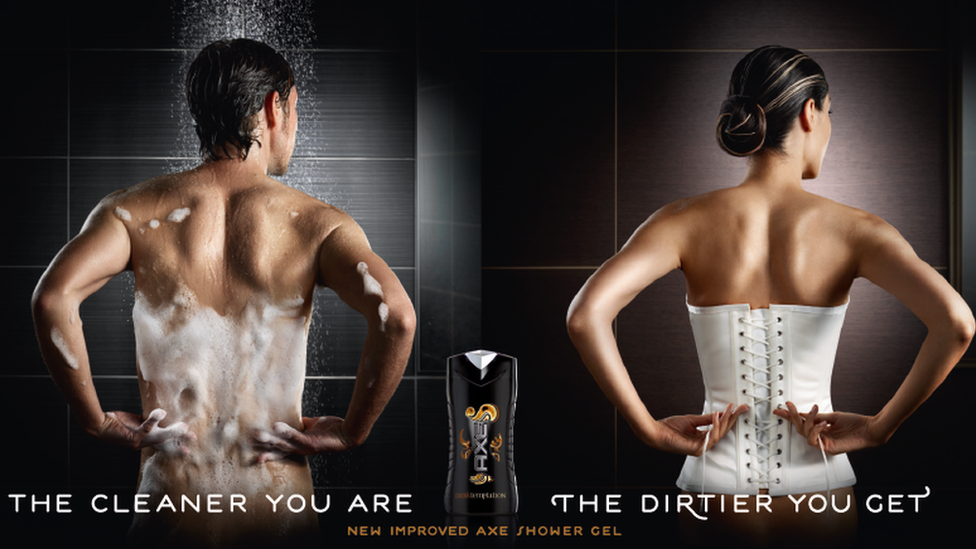Five adverts that tried (or failed) to define women
- Published
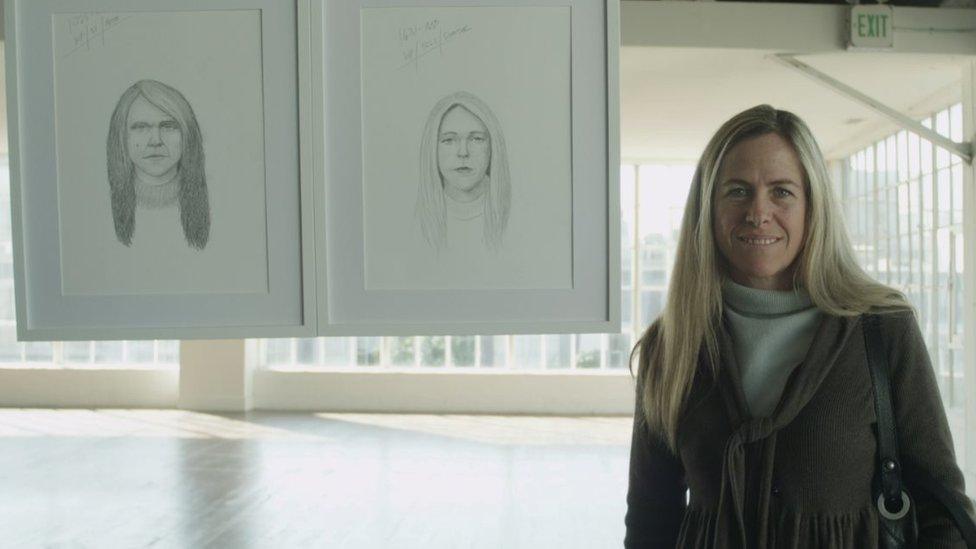
Every month, companies launch their latest attempt at a viral video campaign that reaches out to women. Why?
Women have traditionally held a considerable amount of spending power in certain industries - but according to recent research by Unilever, advertisers often have their work cut out because 40% of women say they don't identify with their portrayal in adverts.
Some companies try to stand out from the crowd using adverts that claim to understand what it's really like to be a modern woman.
This can sometimes be a risky strategy though, as illustrated by five very different campaigns consumers either loved or hated.
H&M, Like A Lady (2016)
High street fashion brand H&M took on traditional ideas about femininity on 11 September with its autumn-winter collection video, Like A Lady, external.
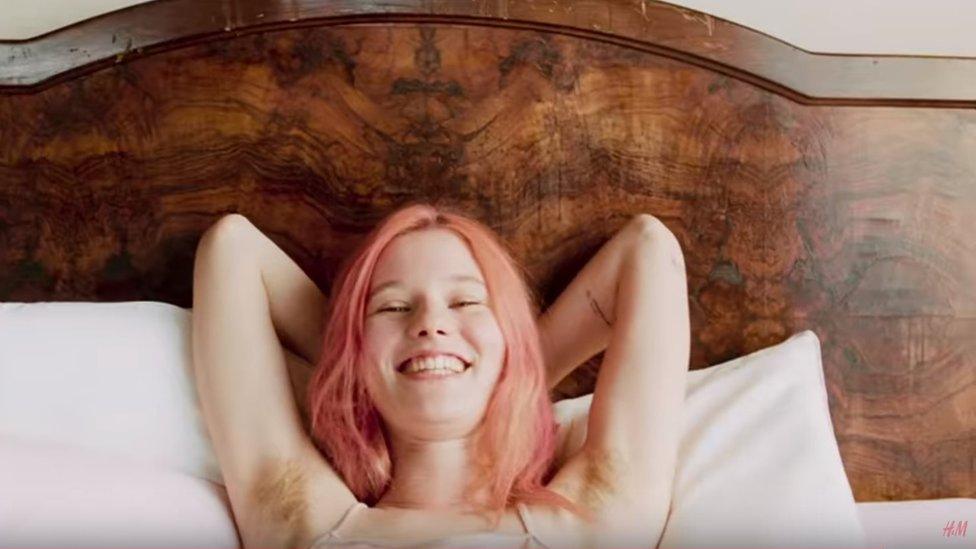
H&M says the campaign encourages women to "embrace their personal style and take pride in who they truly are and what they stand for"
The advert shows a range of women going about their daily lives, opening with a clip of a plus-size woman walking into a bathroom in her underwear.
Set to the song She's A Lady, the video goes on to show a woman with unshaven armpits eating in bed, a famous singer picking food out of her teeth, a transgender model, a woman with defined arm muscles posing on a night out and a woman with a shaved head.
The video gained nearly 1.9 million views on video sharing website YouTube since it was posted on 11 September, with many women reacting positively to the campaign including one woman who tweeted: "Finally, a campaign that speaks to all women, looking and dressing how they want".
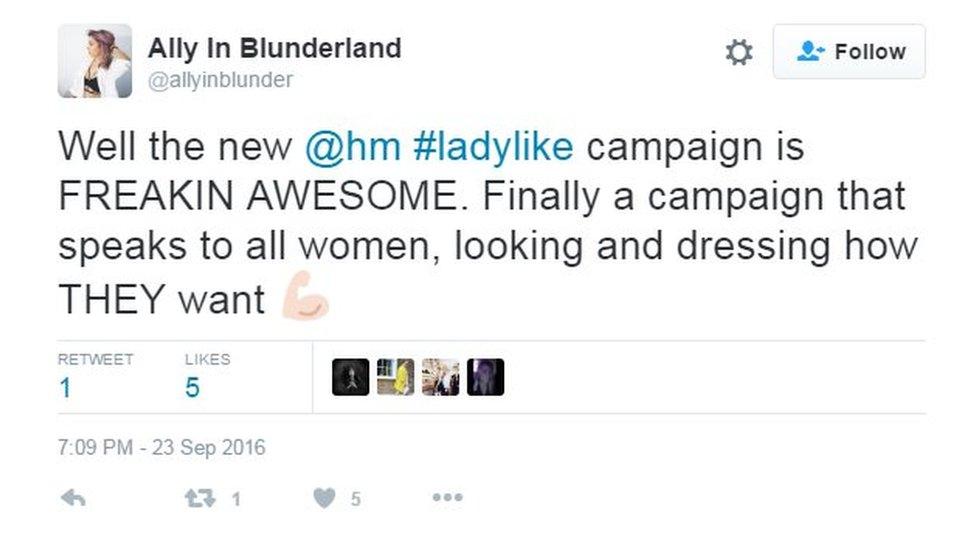
"Entertaining, opinionated, off-beat and fearless. Let's reclaim the word ladylike and give it new meaning," the advert says, asking women to share their own experiences of what the word means to them.
Wrangler, More Than A Bum (2016)
In a more controversial advert, Wrangler released its More Than A Bum video, external on 15 September, featuring interviews with professional women ranging from Olympian Francesca Piccinini to journalist and transgender activist Paris Lees - along with a lot of bottoms.
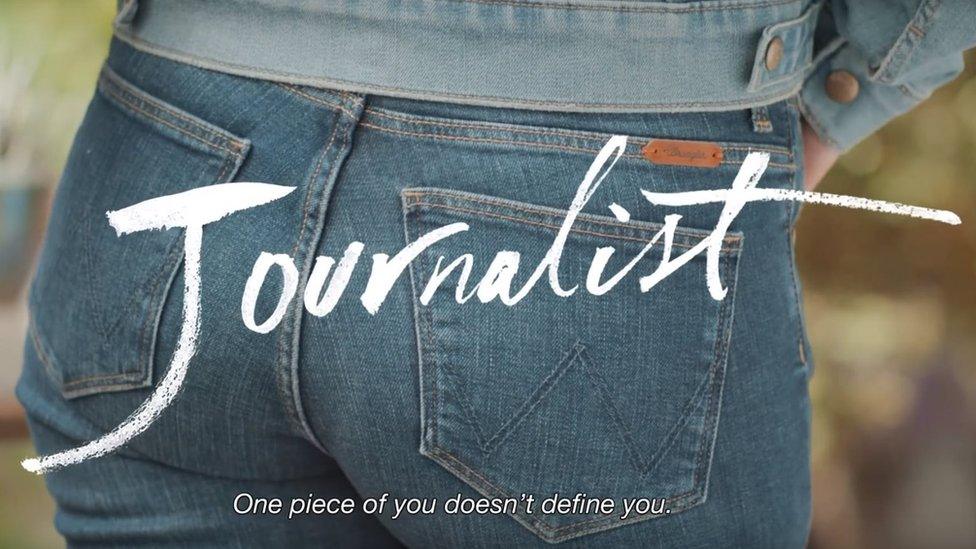
Wrangler said they were "using the same language that advertisements often have, but turning it on its head"
Many of those who speak in the video talk about their experience of being sexualised because they are women - a common topic within popular discussions about women's rights.
Wrangler's advert aimed to sympathise with consumers who want to be recognised for what they do and not how they look.
However, it told their stories through an ironic montage of denim-clad bottoms with the women's job titles superimposed on them - all accompanied by a backing tracking that repeats the word "bum" over and over.
Perhaps unsurprisingly, the advert did not go down well with its target audience, and was heavily criticised by women online and in media publications who accused it of "faux feminism".
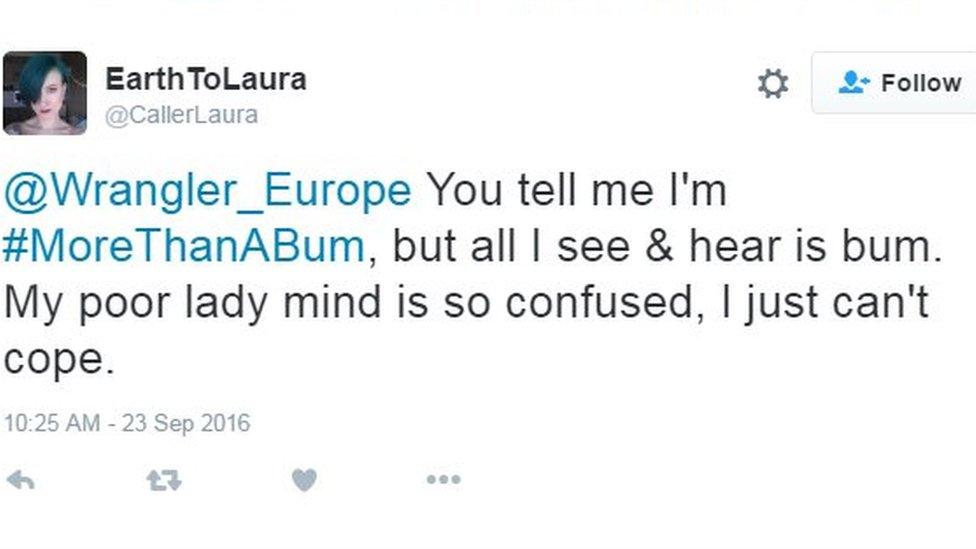
One woman sarcastically joked on Twitter: "You tell me I'm more than a bum, but all I see and hear is bum. My poor lady mind is so confused, I just can't cope."
Wrangler responded to the adverts with a statement which said they were "using the same language that advertisements often have, but turning it on its head".
"Why not look at their story and not at the images of their bums? That's what the film really wants to push you to do," the firm said.
Sport England, This Girl Can (2015)
Produced in response to research showing women were less likely than men to become active because of body image worries, Sport England's This Girl Can campaign, external featured women of all ages from across the country.
The video showed them sweaty and out of breath but having fun while exercising, in a bid to tell women that it doesn't matter how you look while being active.
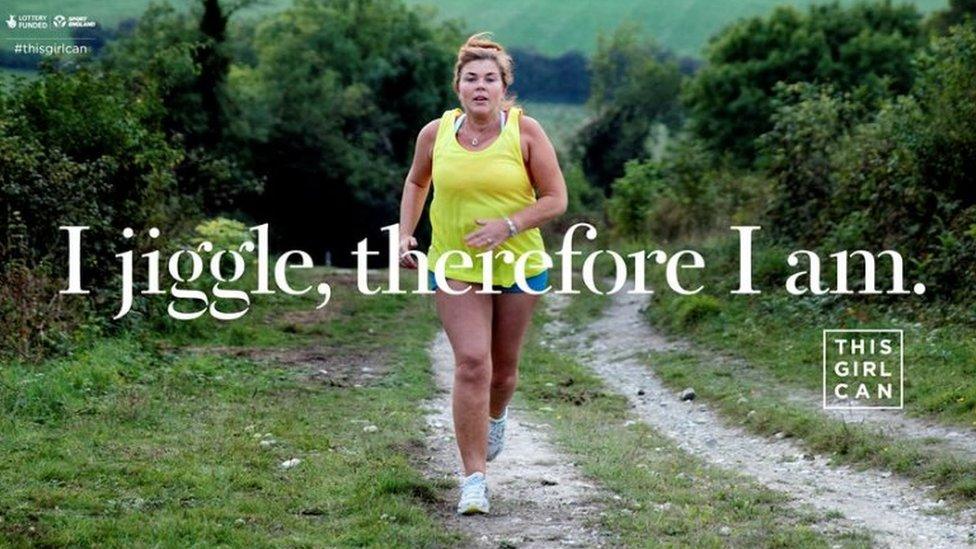
Sport England said that one year after the campaign, more than 660,000 tweets were posted using the hashtag #ThisGirlCan
Sport England told the BBC the campaign was so successful that one year on, millions of people who saw it had been encouraged to exercise.
The This Girl Can films were viewed more than 37 million times on the campaign's YouTube and Facebook channels, and the campaign was talked about in more than 110 countries.
Dove, Real Beauty Sketches (2013)
The Dove Real Beauty Sketches campaign appeared in the Guinness Book of World Records for being the most viewed advert in 2013.
The video shows women being asked questions about their appearance, external by a sketch artist, who draws them based on their (often deprecating) descriptions of themselves.
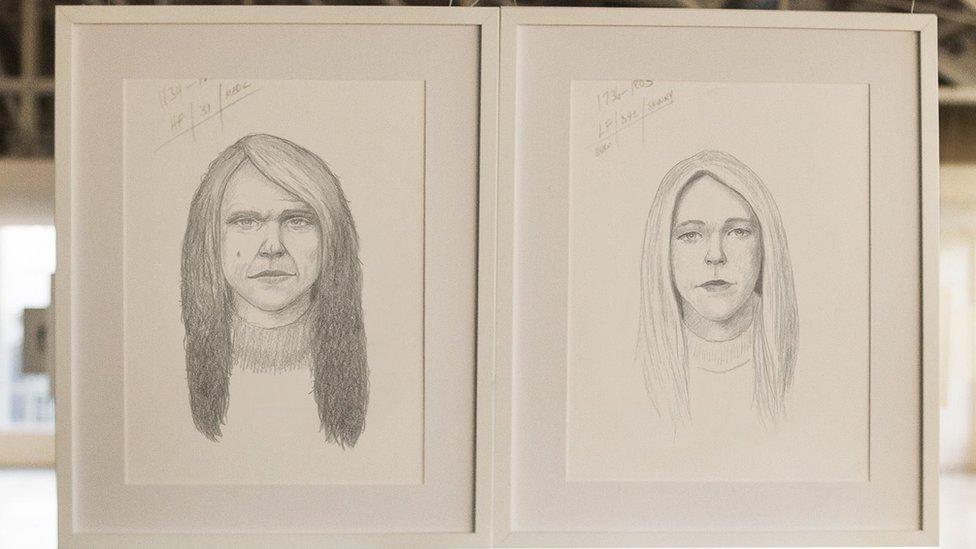
The Dove advert showed how women perceived themselves was very different to how others saw them
Once the women leave the room, a second group of people arrive and tell the sketch artist what the women "really" look like.
Cue small amounts of tears as the original women realise - thanks to Dove - that they've been harsh on themselves for too long.
Several years and 67 million views later, thousands of people around the world continue to watch the video and share their own experiences.
One YouTube viewer wrote in 2016: "I ended up with my eyes watering because it's so true".
Victoria's Secret, The Perfect Body (2014)
Another advert that wasn't especially popular is Victoria's Secret's The Perfect Body bra campaign.
More than 27,000 people signed an online petition asking the company to change the slogan in the advert, which featured an image of 10 similarly slim and tall women.
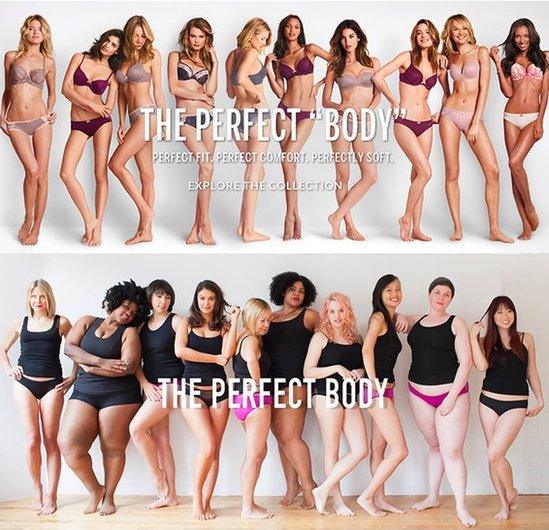
One response from lingerie firm Dear Kate parodied the Victoria's Secret campaign
The phrase was a play on the features of the bras being advertised, with further descriptions in small print mentioning fit, comfort and fabric.
However, after the adverts were shown in the company's UK stores it led to accusations that the company was "perpetuating low self-esteem", external.
Following the petition, it was reported that Victoria's Secret changed the adverts' wording to "a body for every body".
- Attribution
- Published12 January 2015
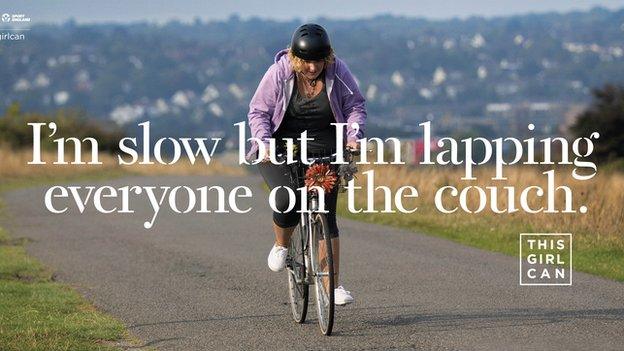
- Published7 November 2014
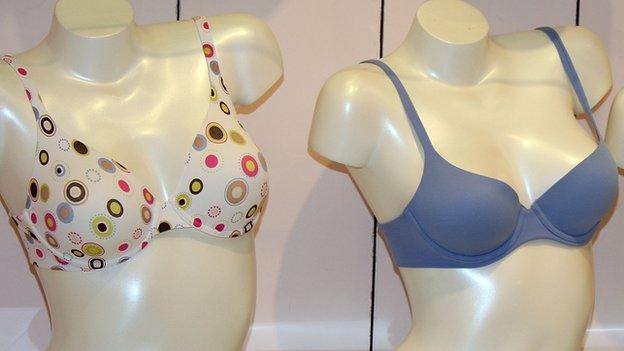
- Published22 June 2016
